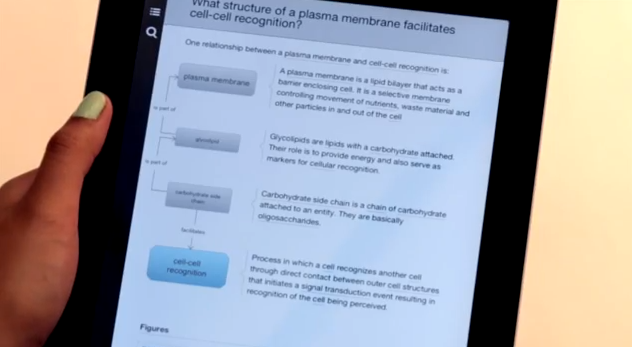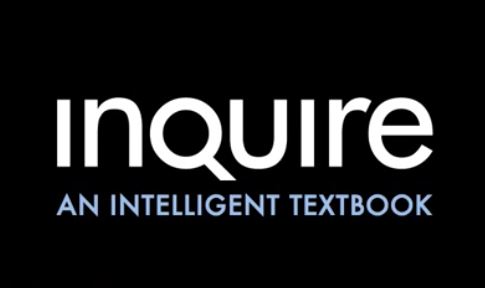Not a scientific calculator — a science calculator. A device with the ability to research helpful, relevant data for a student struggling to understand or remember a concept from biology. This is Inquire: an iPad application based on the Campbell Biology 9th Edition textbook.
In addition to working at MVHS, biology teacher Debbie Frazier is also a biologist at Stanford Research Institute International, the company behind the project. She was recommended for the job by biology teachers Andrew Goldenkranz and Renee Fallon, both of whom worked for the company last summer and saw Frazier as a natural fit for the position.
Though Frazier’s busy schedule already consists of her commitment to being a full-time teacher, wife and mother of two children, as a self-proclaimed “workaholic,” she agreed to take on the innovative new project.
The goal for the project is to create a “science calculator” that would function similarly to a mathematical one, except it would receive and answer questions as words rather than as numbers. Frazier describes Inquire as a “neural network of science.” Just as ideas within the human brain are interconnected and form neural networks, each idea presented in Inquire is connected to form myriad concepts.

Inquire specifically focuses on biology, the subject that the founders decided was the easiest to map. “Mapping” the content is similar to creating a flow chart: project developers attempt to find the most logical thought process behind a student’s question and mirror that in the program in order to find the most relevant information. However, in order to create the application, the concepts involved in biology need to first be organized. This is where Frazier comes in.
Specifically, her task is to draft concept maps by finding the relationships between key ideas in order to form one large network. Frazier’s familiarity with the original textbook and her graduate study of biology makes her an expert on staff. According to Frazier, in her first experience with the project, she saw inconsistencies with the concept maps that had already been created and sought to mend the gaps in knowledge so that the application would better answer student questions.
However, the textbook is not only limited to simple questions. It will also be able to answer complex commands such as “Compare a mitochondria and a chloroplast” with organized information such as a table comparing the functions and structures of both organelles.
“[Inquire] puts at the fingers of students material they might otherwise memorize,” Frazier said. “It shows them, ‘You don’t have to memorize this. Instead, what you should get is a deeper understanding about why it is that way or what might be involved in a new scenario you never heard about before.’”
Recently, Frazier reduced her involvement with the project because of her commitment to teaching. Her most recent contributions include presenting the project at conferences and recruiting new potential members. However, she is still greatly interested in the state and future of Inquire. She anticipates that in the next 18 months, all the informational maps on biology will be properly entered into the program and that in a couple years — following the completion of a prototype — the application will be tested by students attending universities.
Students at De Anza College have already tried the application. The study showed that students who studied with the prototype for two hours did marginally better on homework and quizzes, with all students receiving passing grades.
“So what’s exciting is that in a couple years, I think we’ll prove that again with a larger audience over a longer period of time,” Frazier said.
Frazier claims that she could not be more excited for the project and believes that Inquire is truly an innovation in the field of artificial intelligence because it has universal application. The “calculator,” or concept map idea, could, in theory, be applied to any subject: from science or mathematics to French and history.
“I think this is the right direction,” Frazier said. “We need to move away from memorization and move towards deep, rich understanding and application of what we know. I’m excited that this could lead to that. I think that could have huge ramifications on education.”








